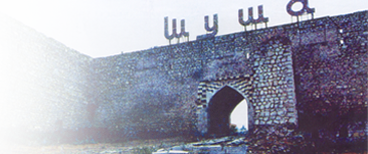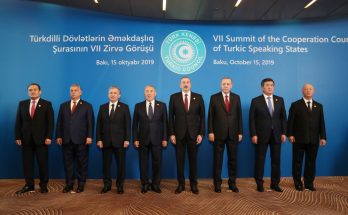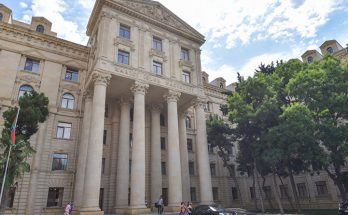
Head of the EU office in Azerbaijan Roland Kobia has urged the belligerents of the Nagorno-Karabakh conflict to comply with international law. “We have expressed our opinion on the opening of the airport in Khojaly and call on both parties to refrain from actions that will lead to an escalation of tension,” EU ambassador to Azerbaijan Roland Kobia told media today.
He was commenting on Armenian attempts to open the airport in Khojaly. He added the EU strongly supports the peaceful settlement of the conflict.
Earlier, Armenian media reported on the intended commissioning of the airport at Khojaly in the near future.
The commissioning of the airport is an open violation of the Convention on International Civil Aviation (adopted on December 7, 1944 in Chicago), the Azerbaijani Foreign Ministry reported earlier.
Azerbaijan will strengthen the legal level use of the application of the Chicago convention.
Azerbaijan banned the use of the airspace over Nagorno-Karabakh occupied by Armenia, as no one can guarantee a safe air corridor in the area, the Azerbaijani Civil Aviation Administration said earlier.
According to Azerbaijani Civil Aviation Administration, Armenia’s steps towards the operation of the airport are attempts to violate international aviation law. This air space belongs to Azerbaijan, so its use by Armenia is illegal.
The International Civil Aviation Organisation (ICAO) and the European Civil Aviation Conference (ICAC) also support the position of Azerbaijan on this issue.
The conflict between the two South Caucasus countries began in 1988 when Armenia made territorial claims against Azerbaijan. Armenian armed forces have occupied 20 per cent of Azerbaijan since 1992, including the Nagorno-Karabakh region and seven surrounding districts.
Azerbaijan and Armenia signed a ceasefire agreement in 1994. The co-chairs of the OSCE Minsk Group – Russia, France and the U.S. – are currently holding peace negotiations.
Armenia has not yet implemented the U.N. Security Council’s four resolutions on the liberation of the Nagorno-Karabakh and the surrounding regions.
/Trend/




